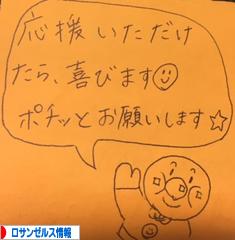米国歯科医師免許取得方法!
こんにちはー!
この間、Ririさんから頂いた質問なのですが、前から記事にしようと思っていたことです。いつもは、歯科の話をする際は一般の人向けに書くことがほとんどですが、今日は歯科医師向きの記事になるので、分かりにくかったらゴメンなさい!!
以下質問内容。
(わかりやすいように一部改正)
..….....................................
私はアメリカで歯科医師として働きたいと思っています。調べましたところ、advanced standing program とresidency program があり、advancedは全米どの州でも働けるが、2年で2000万以上かかりそうで、悩んでいます。residency program は働ける州が限られたりするようですが、chloeさんはこちらでしょうか?経済状況から、こちらを考えたいのですが、方法がよくわかりません。大学のホームページなどで調べてもこちらに関する情報を見つけられず...chloeさんはどのようにして留学先を見つけられましたか?また、専門医取得後は働ける州などはアメリカ歯科医師免許取得Dr.と同じ扱いになりますか?
希望は開業もしくは勤務医として半永住です。
...................................
最初に、私は、歯科医師免許の資格を変換するためにUCLAに来たわけではありません。あくまでも口腔顔面痛のアメリカの専門医資格の取得のためであり、渡米するまでは、どうやったら歯科医師免許を変換できるかなんて、調べもしませんでした。
なので、今日紹介する方法は、あくまでも私が現地で仕入れた生の情報です。リサーチをした、というよりも、周りの歯科医師がとっている方法ですね。
間違いがあったり、その情報古くない?というご指摘は大歓迎ですので、教えて下さい!!
実際、レジデントをしに来た多くの海外の歯科医師は、2年の間に歯科医師免許を変換します。そのつもりで来ていなくても、多くの人がとりあえず取れるもんは取っておくか、ということで受験していくようです。
しかし、先にお伝えしておきたいのは、歯科医師免許があれば、アメリカで働けるか、と言ったら、それはNOです。
なぜか、それはビザの問題があるから。
歯科医師免許を持っているからビザが下りる、ということはまずないでしょう。
どうにかして、グリーンカードを発行してくれるつてを探さなければ、レジデントなり、学生なりの契約期間終了後、1年間のOPTという働いていいよーターム終了後は帰国せざるをえなくなりますので、本当にアメリカで歯科医師としてやっていきたいならば、そこの点についての対策が必要です。
では!!
まず、Ririさんのおっしゃられるように、日本の歯科医師がアメリカで歯科医師になるには、いくつかの方法があります。そのうちメジャーな二つを紹介します!
1、4年生大学の歯学部に入学
これは、Ririさんがおっしゃるadvaned programのことです。名前は各大学によって違うと思います。
(1)普通に4年のプログラムに入学
(2)海外の歯科医師免許を持っている人のための編入試験を受ける。3年次に編入し、2年間の臨床実習メインのパートをやる
https://www.dentistry.ucla.edu/learning/professional-program-international-dentists
これはUCLAの編入のサイトのページ。
これは、普通に大学に入るということなので、お金は確かにかかります。いくらか、というのは、一概には言えません。なぜなら、公立なのか、私立なのか、田舎の学校なのか都会の学校なのか、によって学費、生活費はかなり違うでしょう。学費の件に関してはきになる大学のホームページを開けばいいので、そちらを参考にしてください。
この方法をとることのメリットは、卒業後は、自分の好きな州の試験をうけられることです。国家試験の他に、それに合格した後は州ごとの試験に合格しなければならないのですね。
その時に、私、ロスがいいー!ニューヨークがいいー!やっぱハワイよねー!!
など、好きなところの就業地を選べます。
2、専門医取得からの歯科医師免許取得
これは、歯科医師免許取得の時には専門医の資格も持っているので、収入の面ではかなり有利な上に、レジデントプログラムは学生をやるプログラムに比べると格段に安いです(むしろお金をもらえる場合もあります)。
しかし、働ける州が、最初のうちは制限があります。
その制限にも幾つか違いがあります。
(1)まず、その専門医のコースが、ADA(アメリカ歯科医師会)に認められているかどうか。ADA認定の専門医は以下の科です。
Specialty Definitions
Definitions of Recognized Dental Specialties
Approved by the Council on Dental Education and Licensure, American Dental Association
Dental Public Health: Dental public health is the science and art of preventing and controlling dental diseases and promoting dental health through organized community efforts. It is that form of dental practice which serves the community as a patient rather than the individual. It is concerned with the dental health education of the public, with applied dental research, and with the administration of group dental care programs as well as the prevention and control of dental diseases on a community basis. (Adopted May 1976)
Endodontics: Endodontics is the branch of dentistry which is concerned with the morphology, physiology and pathology of the human dental pulp and periradicular tissues. Its study and practice encompass the basic and clinical sciences including biology of the normal pulp, the etiology, diagnosis, prevention and treatment of diseases and injuries of the pulp and associated periradicular conditions. (Adopted December 1983)
Oral and Maxillofacial Pathology: Oral pathology is the specialty of dentistry and discipline of pathology that deals with the nature, identification, and management of diseases affecting the oral and maxillofacial regions. It is a science that investigates the causes, processes, and effects of these diseases. The practice of oral pathology includes research and diagnosis of diseases using clinical, radiographic, microscopic, biochemical, or other examinations. (Adopted May 1991)
Oral and Maxillofacial Radiology: Oral and maxillofacial radiology is the specialty of dentistry and discipline of radiology concerned with the production and interpretation of images and data produced by all modalities of radiant energy that are used for the diagnosis and management of diseases, disorders and conditions of the oral and maxillofacial region. (Adopted April 2001)
Oral and Maxillofacial Surgery: Oral and maxillofacial surgery is the specialty of dentistry which includes the diagnosis, surgical and adjunctive treatment of diseases, injuries and defects involving both the functional and esthetic aspects of the hard and soft tissues of the oral and maxillofacial region. (Adopted October 1990)
Orthodontics and Dentofacial Orthopedics: Orthodontics and dentofacial orthopedics is the dental specialty that includes the diagnosis, prevention, interception, and correction of malocclusion, as well as neuromuscular and skeletal abnormalities of the developing or mature orofacial structures. (Adopted April 2003)
Pediatric Dentistry: Pediatric Dentistry is an age-defined specialty that provides both primary and comprehensive preventive and therapeutic oral health care for infants and children through adolescence, including those with special health care needs. (Adopted 1995)
Periodontics: Periodontics is that specialty of dentistry which encompasses the prevention, diagnosis and treatment of diseases of the supporting and surrounding tissues of the teeth or their substitutes and the maintenance of the health, function and esthetics of these structures and tissues. (Adopted December 1992)
Prosthodontics: Prosthodontics is the dental specialty pertaining to the diagnosis, treatment planning, rehabilitation and maintenance of the oral function, comfort, appearance and health of patients with clinical conditions associated with missing or deficient teeth and/or oral and maxillofacial tissues using biocompatible substitutes. (Adopted April 2003)
(2)また、CODAと呼ばれる comission on dental accreditionの規定に沿ったプログラムであるかないか、というのが2つ目の基準です。
(3)最低2年以上のプログラムであること
以上の(1)ー(3)のどの基準を満たしているかによって、どの州で働けるかが決まってくるのです。
まず(3)の2年以上のプログラム、というのは最低限の条件です。これだけクリアすれば、non CODA, non ADA approval のプログラムでもOKを出してくれる州はあります。例えばワシントン州とか。
アメリカ全州の状況をここで紹介するのは大変なので、一つ紹介。
https://www.tsbde.texas.gov/ForeignEducatedLicensure.html
これはテキサス州の基準。
Requirements for Licensure of Foreign Educated Dentists
のところを見てもらえばわかるように、
テキサス州では(3)はもちろんのこと、(1)か(2)の基準を満たしてれば良い、と私は読んだのですが…(記載が不明瞭。and/orと書かれていないのですが、おそらくorだと思います)
年によって基準が変わったりするので、しっかり情報をアップデートしていくことをお勧めします。
じゃあ、そのADAとかCODAとかどこでわかるのよわさ!!っていうのは、各大学のホームページに行くしかありません。
例えば、私の診療科は、ADAの認定はされていないけど、
Orofacial Pain and Dysfunction | UCLA Dentistry
で描かれているように、レジデント終われば、codaの認定にはなりますよ、っていう感じです。
てゆーかあんたカリフォルニアに住んでんだから、そこの資格はどうなのよ??っていうことについて。
カリフォルニアは、厳しいです…(1)-(3)すべて満たしてないとダメなんです。じゃあ、例えば、私、一生カリフォルニアでは歯医者ができないの??というと、そこはまた別の規約があって、別の州で5-7年の間に、計5000時間違う州で歯医者やったらオッケーよ、っていう基準もあって。
しかも、明記されている文書はないのですが、噂によると、5年のうち、2年分はレジデントとして働いた期間をカウントしてくれるので、実際他州で3年働けばいいとか悪いとか。(未確認)
まあ、とりあえずここまでをまとめてみると、兎にも角にも、州による、ということです。
なので、自分が学びたい科も、多くの大学がプログラムを持っていると思うので、自分の希望にフィットするものを探し出すしかありません。
細かいことは、あまりネット情報に載っていなかったりするので、直接電話すると詳しくおしえてくれるようです。
また、噂によると、細かいことを書いていないのは、人によって基準が違うから、という話も。というのは、例えば、アメリカ人と結婚して、子供も奥さんもここにいる、という外国人歯科医師には少し基準が甘くなる、とかそういうこともなきにしもあらず、と聞いたこともあります。
ある程度交渉の余地があるようです。
で、まずは何から始めようか迷っているんですけど…という方。
まずは、リサーチですね。
各州の部門に直接電話しましょう。それが早い。ホームページは情報古いです。
英語に関しては、TOEFLの取得も必須ですね。大学によりますが、90点くらいが相場かな??
その次、やること。
アメリカの国家試験は、来年まで(?)は筆記のパートが1と2に分かれています。
(2020年に統合される予定です)
プログラムによっては、そのうちの基礎科目パートであるNBDE PART1の合格が事前に必須だったりするので、先にっさっさと試験を受けてしまいましょう。
(私のプログラムのレジデントもパート1は必須です。ほとんどのレジデントプログラムは必須なんじゃあないかな)
うわー、今日は長文になりましたねー。
疲れた…
少しでも誰かの役に立ってくれたらいいな…。
でーは、そろそろ勉強しなくちゃ。
あ、国家試験じゃあなくて、専門医試験のね。笑
ばーいちゃ!
Have a beautiful day!!
